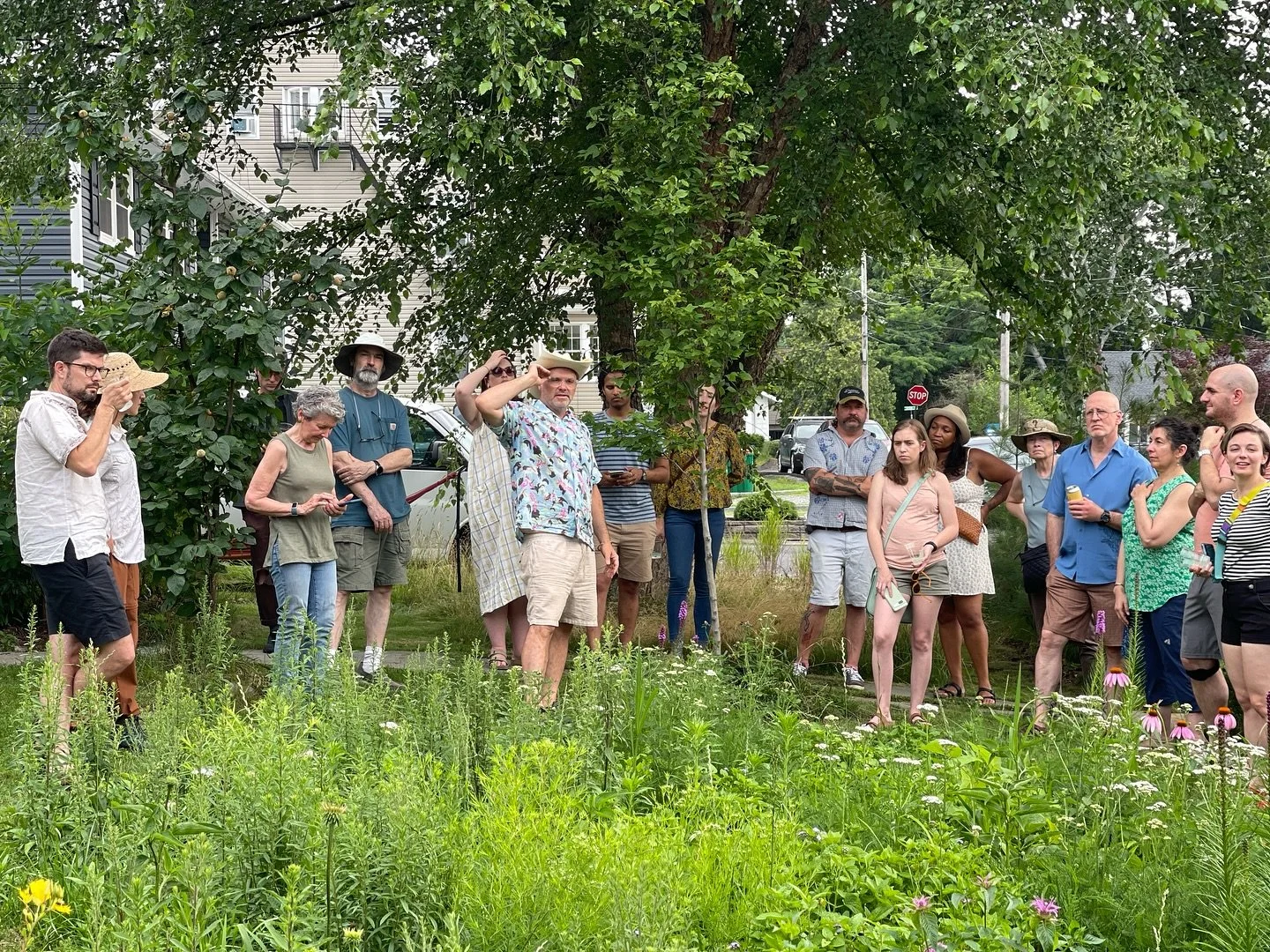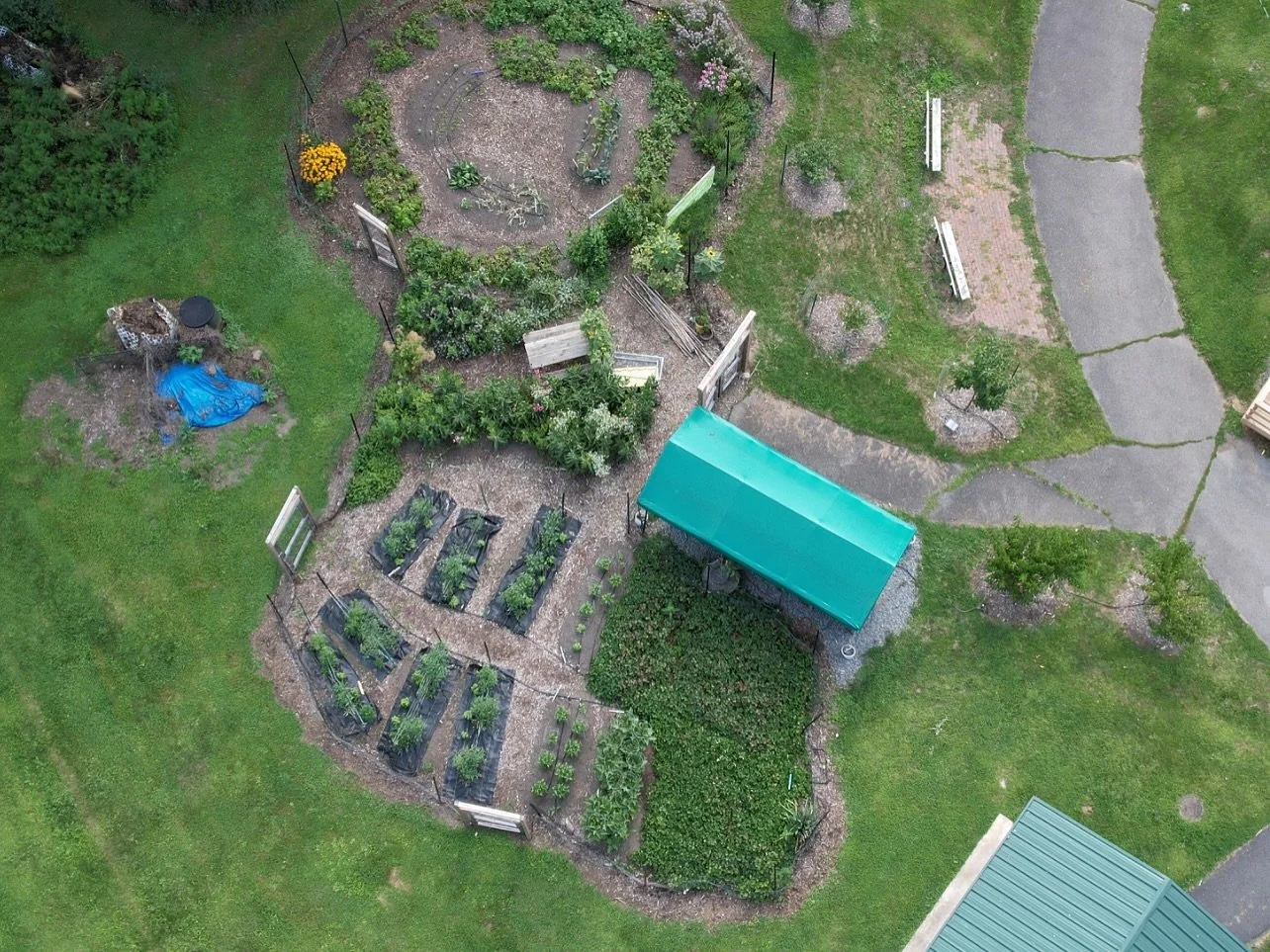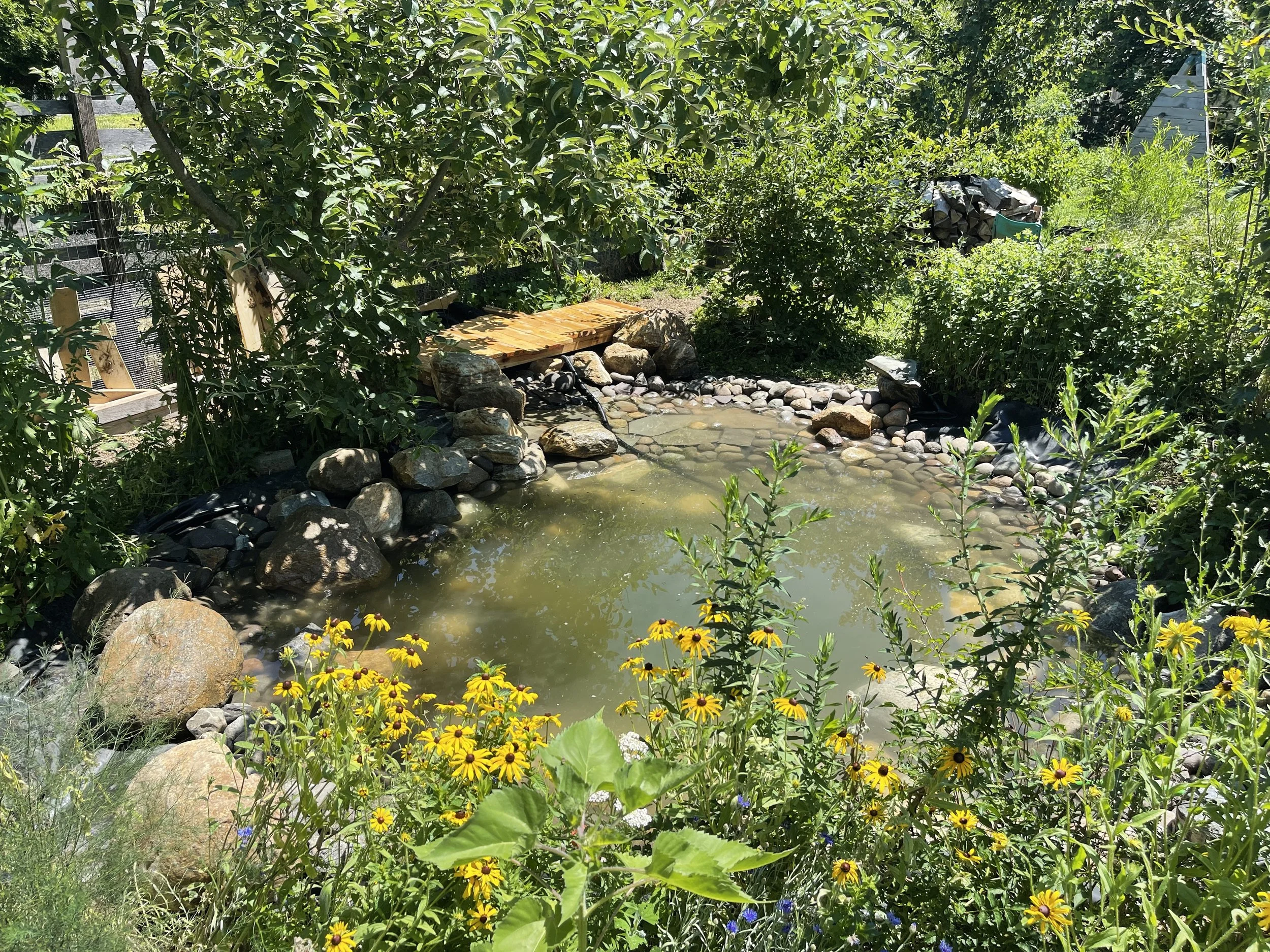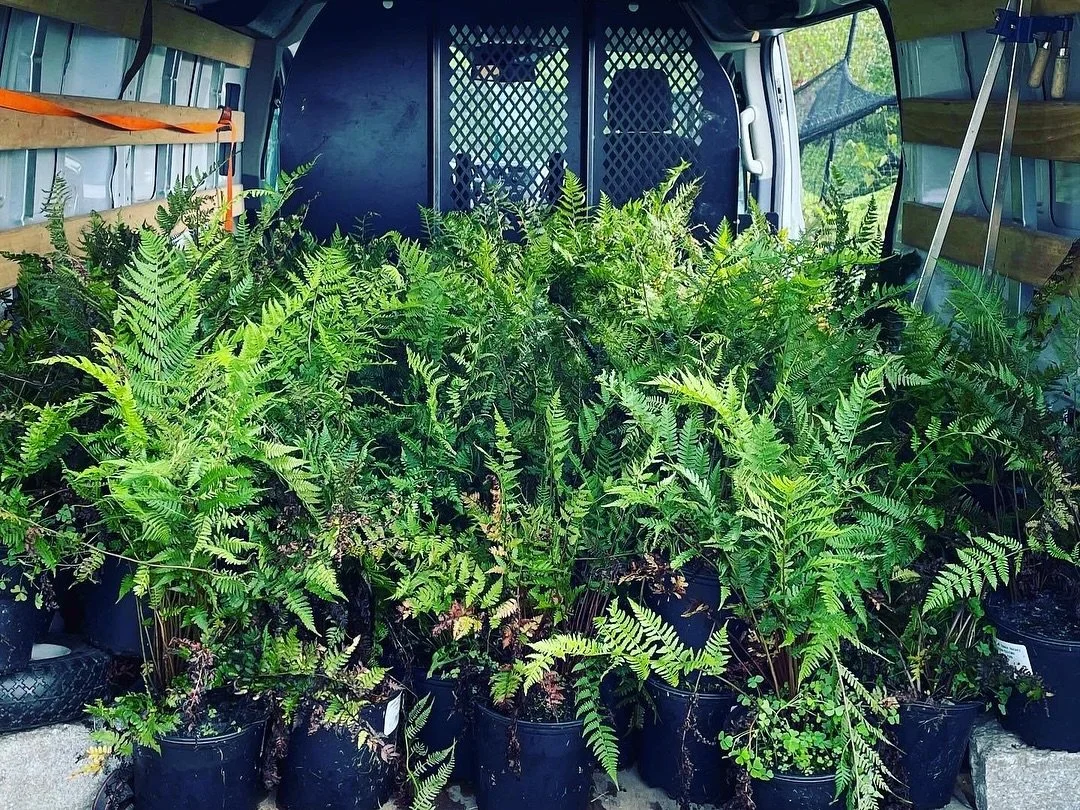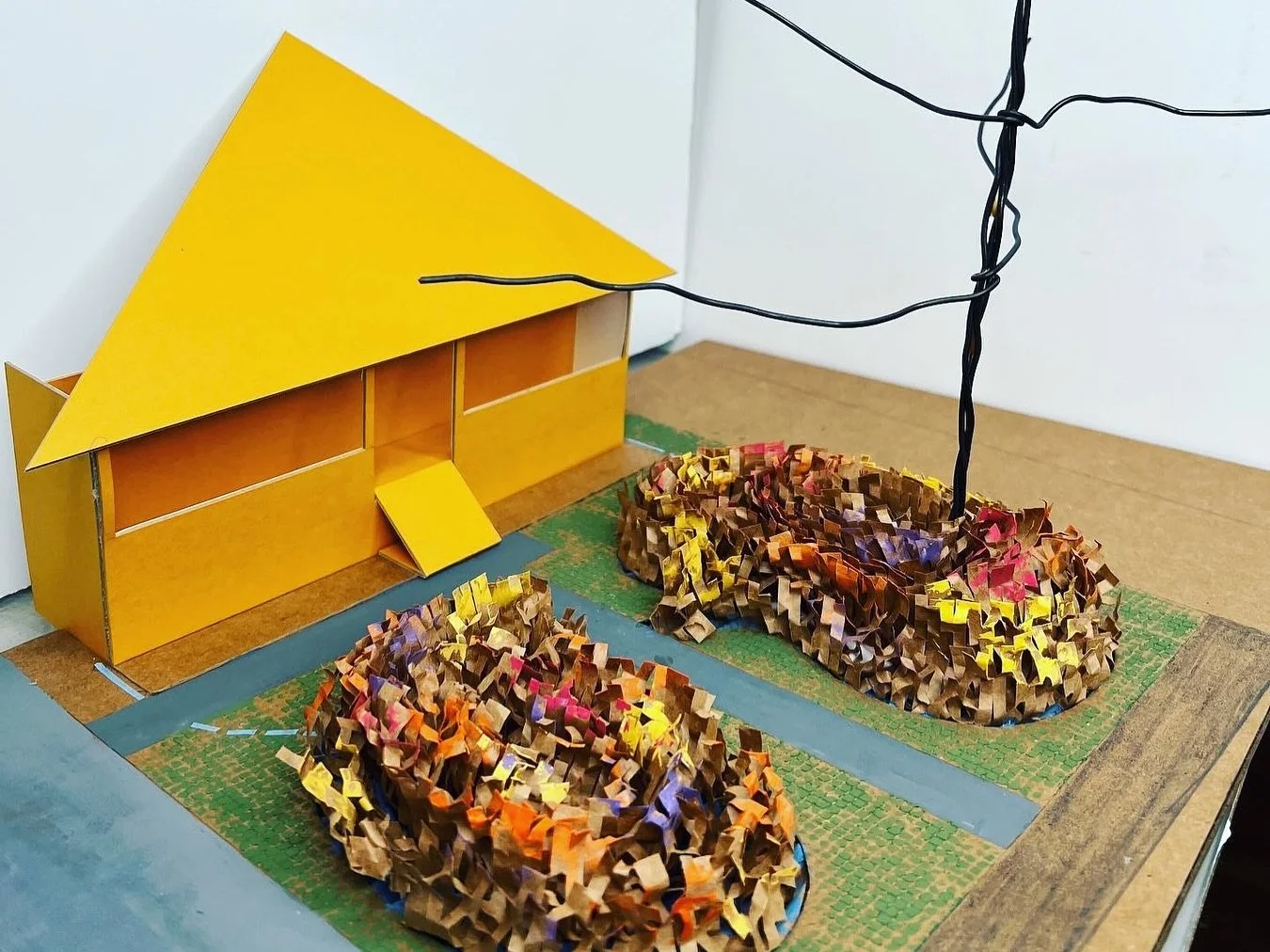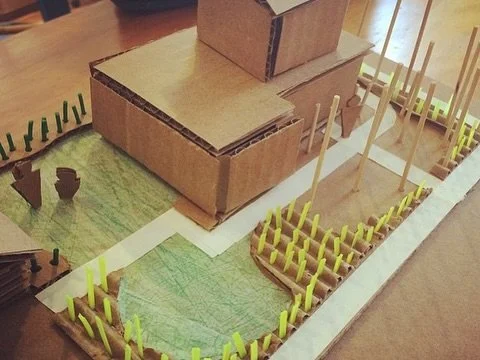Beacon Refugia
The Hudson Valley serves as a critical crossroads for a diverse range of eastern species due to its unique location and geological and topographical variety. However, ongoing habitat fragmentation and loss caused by development and climate change pose significant threats to the region’s biodiversity. Fragmentation disrupts species movement, increases human-wildlife conflicts, and facilitates the spread of invasive species.
We address these challenges through our Beacon Refugia project, which is rooted in the ecological concept of refugium—areas that support isolated populations of species once more widespread. Traditionally, refugia include islands, high peaks, or undisturbed valleys. In this project, however, refugia take the form of suburban garden spaces, each acting as a sanctuary for the spirit of life to flourish.
Each garden we build incorporates site-appropriate native plants that provide essential ecological benefits, such as habitat creation, stormwater management, carbon sequestration, and temperature regulation. Individually, these gardens offer localized solutions to the impacts of climate change for property owners. Collectively, they form a sprawling 28-acre park across Beacon, with an annual growth rate of seven acres. These gardens are interconnected by landscape corridors and flyways, significantly enhancing Beacon’s ecological health and functionality. Each garden becomes not only a refuge for wildlife but also a space where humans can reconnect with the rhythms and energy of the natural world.
A central principle of the Refugia project is creating gardens that inspire joy, beauty, and a deep connection to the earth for homeowners. Harmonizing the needs of humans and local ecosystems ensures these landscapes endure over time. We treat each garden as a work of art, with the landowner as the patron, and we work closely with our clients to balance their needs, preferences, and budgets while designing these inspirational spaces. We see these gardens as spaces where the ecological interconnectedness is honored and celebrated.
Our ultimate goal is landscape resilience, defined as the ability of a landscape to sustain ecological functions, robust native biodiversity, and critical processes over time despite stressors and uncertainties. While many resilience efforts focus on urban areas, the Refugia project demonstrates how individual and community-level initiatives can achieve meaningful ecological impact at a fraction of the cost.
The project began with the creation of our Demonstration Garden on Coffey Avenue, which transformed a typical suburban lawn into a thriving ecosystem. Initial efforts included a small vegetable garden and raspberry hedges, which expanded over time to include swales, wetlands, geodesic domes, koi ponds, fruit and nut trees, and habitats for pollinators, chickens, and other wildlife. This space became a showcase and testing ground for the concepts we now implement in the Refugia project. The transformation of the Demonstration Garden also symbolizes a deeper spiritual journey, turning a barren space into a flourishing oasis of life.
Today, the heart of the Refugia project is our Garden Center, offering a wide variety of native and medicinal plants grown organically and often from seeds we collect locally. While plants sold at the Garden Center are not counted as part of the Refugia gardens, they embody the project’s spirit by spreading biodiversity throughout the community. The Garden Center also serves as an educational hub, offering classes on gardening, permaculture, and sustainable practices, and as the headquarters for our build team responsible for new Refugia projects. It is a place where individuals can deepen their understanding of the sacred relationship between humans and nature.
Sustainability is at the core of our practices. All our designs use regionally-sourced materials, such as local bluestone and hemlock wood, and avoid petroleum-based products, Portland cement, and mass-produced items whenever possible. By prioritizing locally sourced and environmentally friendly materials, we minimize our ecological footprint while supporting the local economy. This commitment reflects our belief in living in harmony with the earth, respecting its resources, and giving back more than we take.
Since its inception, the Beacon Refugia project has grown to include over 115 properties in the 12508 area, creating a network of biological hotspots across the town. This model is highly replicable and offers a vision for the future where every community can establish its own Refugia network. Such efforts would strengthen connections between people and nature while providing an affordable and effective strategy to combat habitat loss and fragmentation. In this vision, communities become stewards of the earth, guided by a shared reverence for the balance and beauty of creation.

